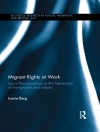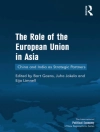Karl Marx’s classic definitions of class and society under capitalism are still widely used today. Ideas such as class, revolution, production and oppression are employed across a broad range of academic subjects, reaching beyond politics, economics and sociology.
Yet these concepts, within a specifically Marxist framework, are not always easy to understand. This book is an ideal student introduction that explains, in clear and concise chapters, the precise meaning and implications of each of Marx’s key concepts. Furthermore, the contributors show how these ideas continue to be relevant, and how they relate to modern society.
The contributors include leading academics in the field of politicial science. Outlining clearly what each concept means, they move on to situate it within cutting-edge contemporary political theory.
Concepts include historical materialism, capitalism, class, the state, imperialism, the division of labour, oppression, production and reproduction, revolution, working class internationalism, equality and democracy.
สารบัญ
Acknowledgements
Introduction – Georgina Blakeley and Valerie Bryson
1. Historical Materialism – Philip Wood
2. Capitalism – Keith Faulks
3. Class – Peter Mc Laverty
4. The State – Andrew Taylor
5. Imperialism – Graham Harrison
6. The Division of Labour – Renzo Llorente
7. Oppression – Mary Davis
8. Production and Reproduction – Valerie Bryson
9. Revolution – Paul Blackledge
10. Working Class Internationalism – Mark O’Brien
11. Equality – Brendan Evans
12. Democracy – Georgina Blakeley
Notes on Contributors
Index
เกี่ยวกับผู้แต่ง
Valerie Bryson is Professor of Politics at the University of Huddersfield. She teaches and researches on feminist theory, and women and politics. She is the author or editor of a number of books, including Feminist Debates (Macmillan, 1999), Marx and Other Four-Letter Words (Pluto, 2005) and Contemporary Political Concepts (Pluto, 2002).












